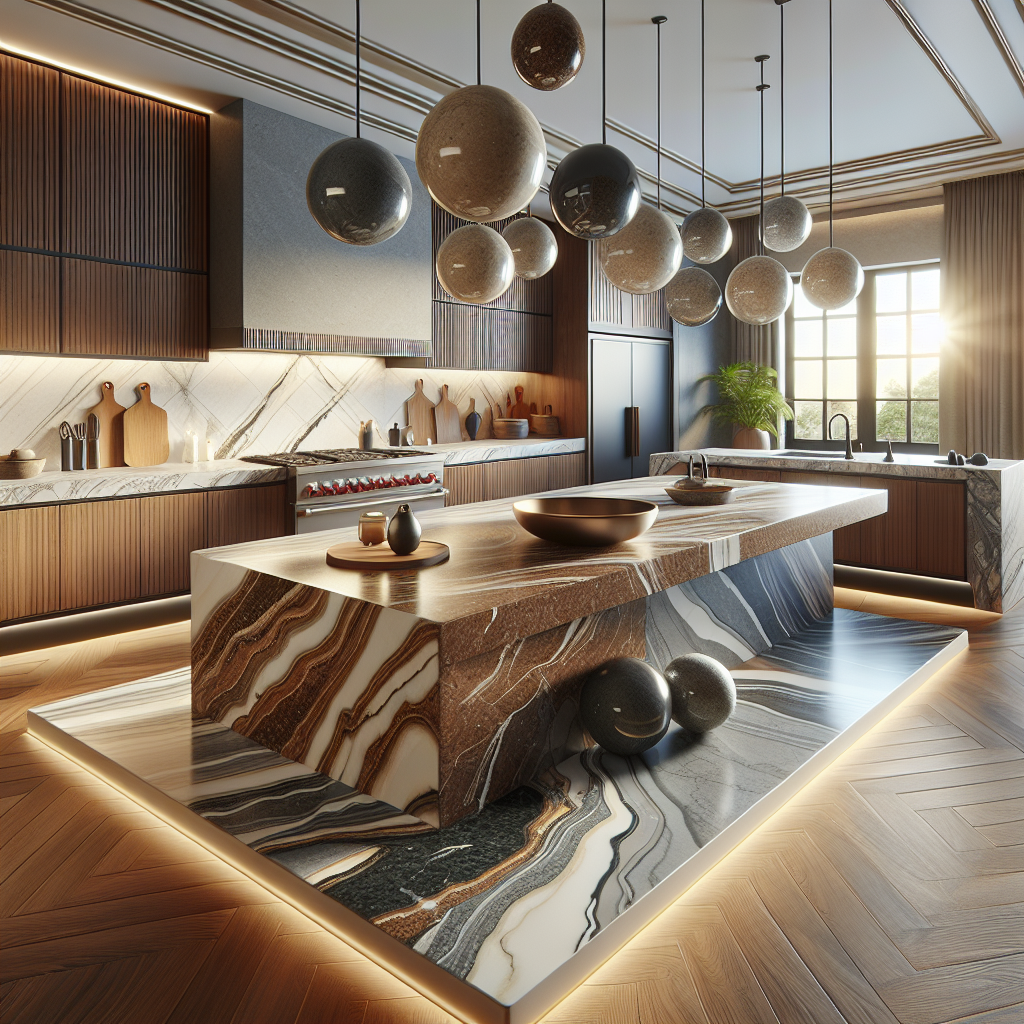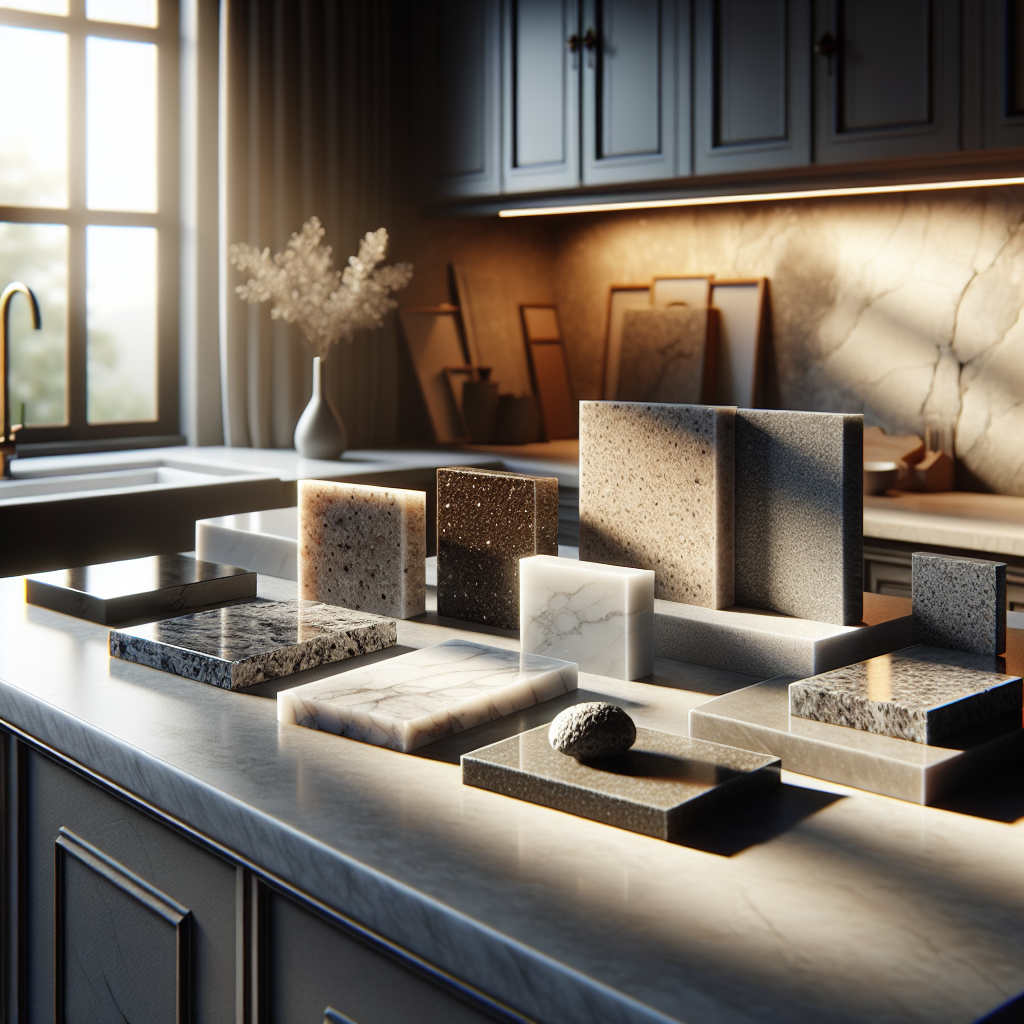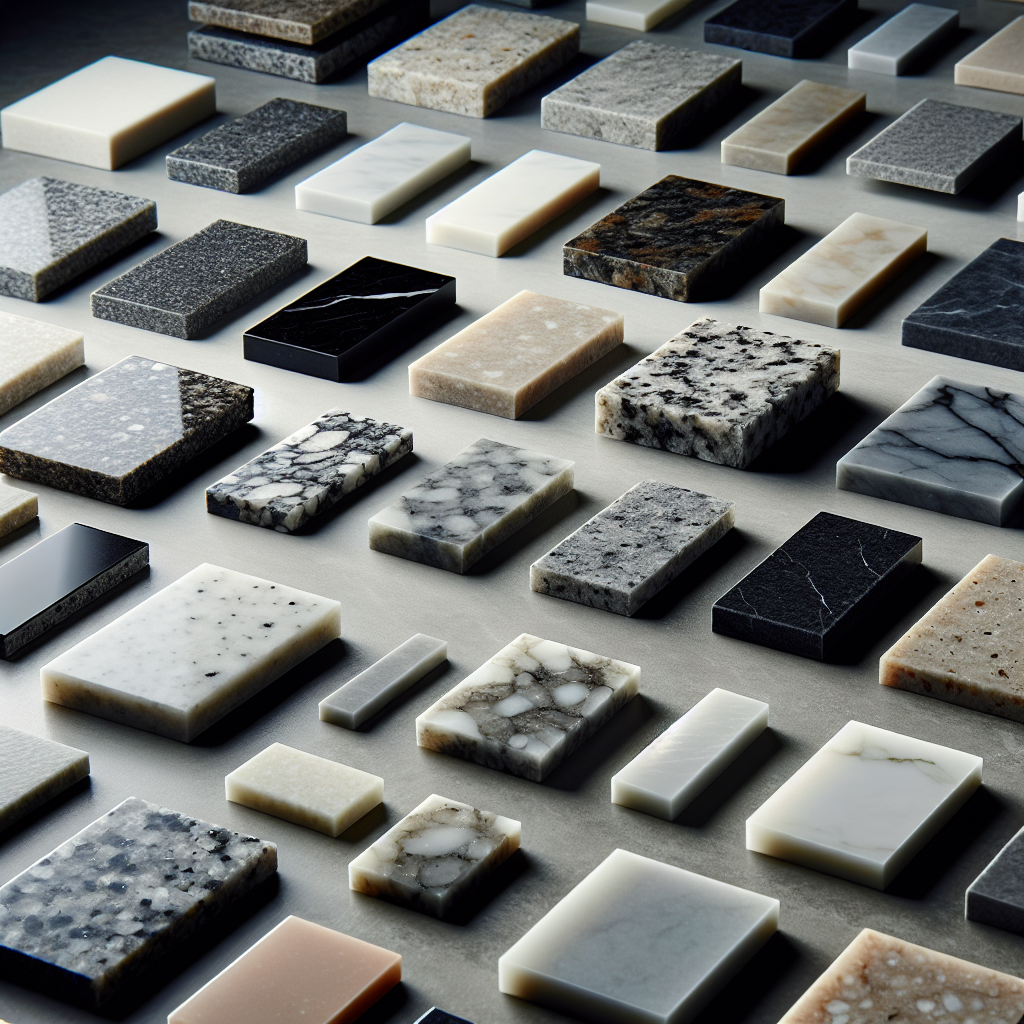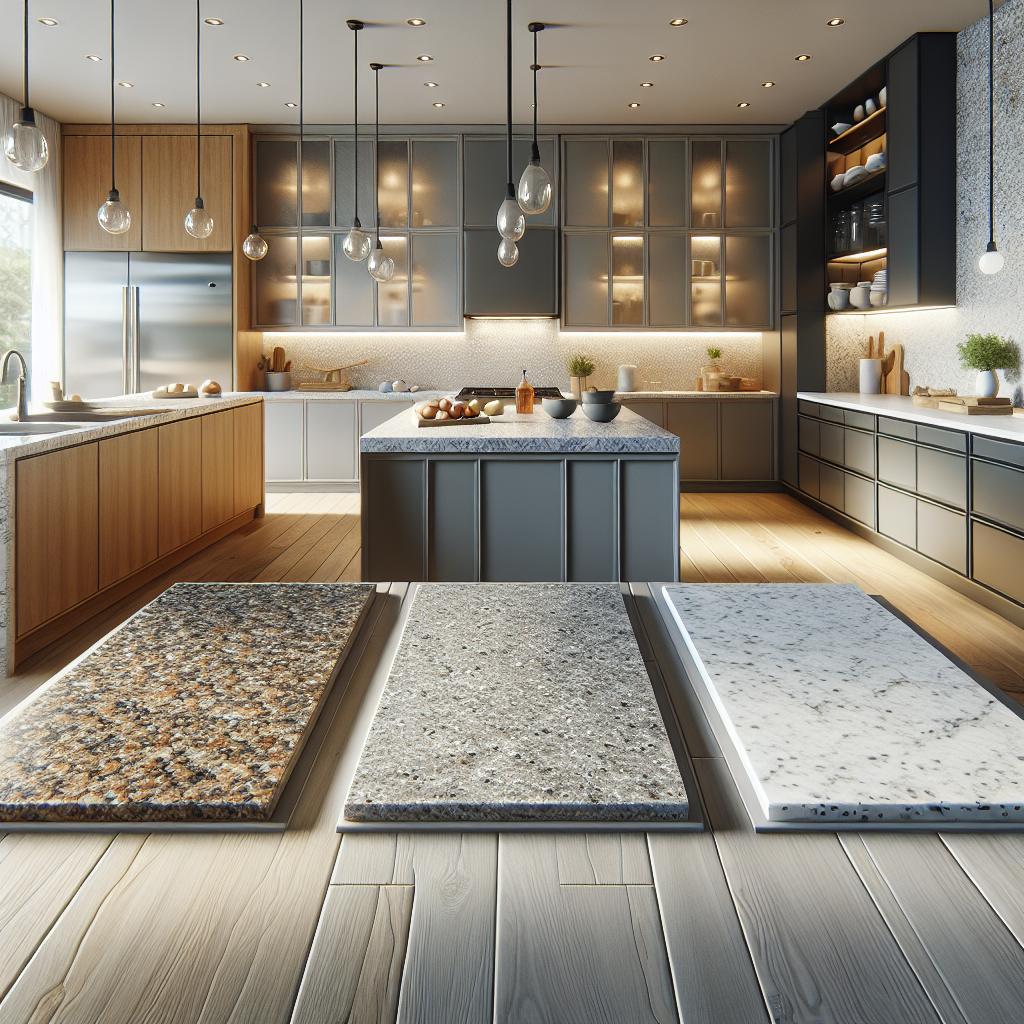When embarking on a kitchen renovation or a new build, one of the pivotal decisions homeowners face is choosing the right countertop. With a myriad of options available, understanding “how much is a custom countertop” can initially seem daunting. Custom countertops offer a unique blend of functionality and aesthetic appeal, tailored specifically to meet your design vision. The cost of these bespoke surfaces is influenced by several factors, including the choice of materials, the size of the countertop, and the complexity of the installation process.
In today’s market, popular materials such as granite, quartz, and porcelain top the list for their durability and luxurious appeal. Each material comes with its own set of characteristics and price points. For instance, granite is revered for its natural beauty and resilience, while quartz offers a non-porous surface that’s easy to maintain. Porcelain, on the other hand, is celebrated for its sleek finish and versatility. The choice of material can significantly sway the cost, with prices varying based on the quality, origin, and rarity of the stone.
Moreover, the size and design intricacies of your kitchen play a crucial role in determining the final expense. Larger kitchens or those requiring elaborate edge treatments and custom cuts may incur higher costs. Additionally, installation fees can add to the overall expense, especially if your project demands specialized craftsmanship or unique layouts.
For a comprehensive understanding of potential costs and to ensure you receive a countertop solution that fits both your budget and style, it’s essential to collaborate with experienced professionals. Call us today at (954) 781-7370 for a free quote! Our expert team at Absolute Marble and Granite is dedicated to helping you navigate through the myriad of options and providing you with a customized, cost-effective solution that enhances your kitchen’s aesthetic appeal.
Factors Influencing Countertop Pricing

The cost of custom countertops is not a one-size-fits-all figure. Several key factors come into play when determining the final price, each contributing to the overall expense in unique ways. Understanding these elements can help you make informed decisions and budget effectively for your kitchen upgrade.
Material Selection: The choice of material is perhaps the most significant factor influencing the cost of a countertop. Popular materials such as granite, quartz, and porcelain each possess distinct advantages and price ranges. Granite, for instance, is valued for its natural beauty and strength, but its cost can vary greatly depending on the source and rarity of the stone. Quartz, known for its durability and low maintenance, often comes at a premium due to its engineered nature. Porcelain, while often more affordable, can also vary in price based on its design and finish.
Countertop Size and Shape: The dimensions of your countertop directly impact the cost. Larger countertops require more material and thus are more expensive. Additionally, unique shapes or complex designs may require custom cuts and additional labor, further increasing the price. Considerations such as the thickness of the slab and edge details also add to the overall cost.
Installation Complexity: The installation process itself can significantly affect the price. Simple installations may be straightforward and less costly, while intricate designs or challenging layouts can demand more time and expertise, which drives up labor costs. Factors such as the need for reinforced structures or the integration of sinks and appliances also play a role in this regard.
Additional Features: Extras such as integrated sinks, backsplashes, and custom finishes can enhance the functionality and aesthetics of your countertops but also add to the cost. These features require extra materials and labor, which should be factored into your initial budgeting.
By considering these variables, you can better anticipate the investment required for your custom countertop and ensure that your project aligns with both your vision and financial plan.
Comparing Countertop Material Costs
Navigating the diverse world of countertop materials can be overwhelming, especially when it comes to understanding the costs associated with each option. The price of a countertop material is often a reflection of its quality, durability, maintenance needs, and aesthetic appeal. Here’s a comparison of some popular materials to help guide your decision.
Granite: Known for its natural beauty and resilience, granite is a top choice for many homeowners. The cost of granite varies considerably based on the rarity and origin of the stone. *Basic granite* can start at a lower price point, but exotic varieties can become quite expensive. Granite is a worthwhile investment due to its longevity and timeless appeal.
Quartz: As an engineered stone, quartz combines natural stone with resin, offering a non-porous and low-maintenance surface. While typically more expensive than granite, quartz offers uniformity in color and pattern, appealing to those seeking a contemporary look. The cost reflects its durability and the convenience it provides in upkeep.
Porcelain: This material is gaining popularity for its affordability and versatility. Porcelain countertops can mimic the look of natural stone or concrete at a fraction of the cost. They are stain-resistant and highly durable, making them a budget-friendly alternative for those desiring both style and functionality.
Marble: Often associated with luxury, marble is a classic choice that brings elegance to any kitchen space. However, marble is typically higher in price due to its softness and susceptibility to scratches and stains, requiring more diligent maintenance. Its unique veining and beauty often justify the cost for those seeking a sophisticated look.
By weighing the costs and benefits of each material, you can select the perfect countertop that aligns with your budget and aesthetic goals, ensuring that your kitchen not only looks stunning but also serves your needs effectively.
Cost of Professional Countertop Installation

When planning for a new countertop, it’s essential to consider not only the price of the material but also the *cost of professional installation*. This service is a crucial component in ensuring that your countertop is fitted correctly and functions as intended. Professional installation guarantees precision and safety, but it also comes with its own set of expenses.
Labor Costs: The labor involved in countertop installation is a significant factor in the overall cost. Skilled craftsmen, like those at Absolute Marble and Granite, use their expertise to handle materials carefully, ensuring precise cuts and seamless joints. The labor cost can vary depending on the complexity of the installation and the type of material being used. Granite and quartz, for example, are heavier and require more labor-intensive installation techniques.
Preparation and Removal: Before installing new countertops, the existing surfaces may need to be removed, which can incur additional charges. Proper preparation of the area ensures that your new countertop fits perfectly and performs optimally. This step includes ensuring the cabinetry can support the weight of the new countertops, especially for heavier materials like granite and marble.
Customization and Additional Features: If you’re opting for custom features such as integrated sinks, backsplashes, or unique edge profiles, these can add to the installation cost. Customization allows for a personalized touch but requires additional attention to detail and time from the installation team.
Investing in professional installation is vital to achieving a stunning and functional kitchen space. While it may add to the initial expense, the peace of mind and quality results justify the investment, ensuring your countertops are a lasting asset in your home.
Budgeting for Your Custom Countertop

Creating a budget for your custom countertop project is a strategic step that can help you manage expenditures and achieve the kitchen of your dreams without unexpected financial strain. By breaking down the costs and considering various factors, you can make informed decisions that align with your financial goals.
Material Selection: The choice of material is one of the most significant determinants of the overall cost. While luxurious options like *granite and quartz* offer durability and elegance, they come at a higher price point compared to more economical solutions like laminate. It’s crucial to assess your priorities and select a material that balances aesthetics, functionality, and budget.
Project Scope: Define the scope of your countertop project early on. Are you replacing all kitchen surfaces, or focusing on specific areas like the island? Determining the scale of the project will help in calculating costs accurately. Keep in mind that larger projects may benefit from bulk pricing or discounts, which can ease the financial load.
Additional Features and Customization: Consider any additional elements you wish to include, such as backsplashes, integrated sinks, or specialized edge finishes. These customizations enhance the overall look and functionality but can also increase costs. Prioritize which features are essential and which can be optional.
Plan for Contingencies: Always allocate a portion of your budget for unexpected expenses. Whether it’s unforeseen installation challenges or choosing a last-minute upgrade, having a contingency fund ensures that your project remains on track without financial stress.
By carefully planning and budgeting, you can embark on your custom countertop journey with confidence, knowing that your investment will elevate your kitchen’s appeal and functionality while staying within your financial parameters.
Tips for Affordable Countertop Solutions

Transforming your kitchen with stunning countertops doesn’t have to break the bank. There are numerous strategies to achieve an upscale look while keeping costs manageable. Here are some practical tips to secure affordable countertop solutions:
Consider Alternative Materials: While natural stones like granite and marble are popular for their beauty and durability, exploring alternatives such as *engineered quartz* or porcelain can provide similar aesthetics at a lower cost. These materials offer excellent durability and require less maintenance, making them a budget-friendly choice.
Mix and Match: You don’t have to use the same material throughout your kitchen. Consider mixing high-end materials with more affordable options. For instance, a luxurious granite for the island can be complemented by a more economical surface for the perimeter countertops. This approach can create a visually appealing contrast and save money.
Opt for Standard Edges: Intricate edge designs can significantly increase fabrication costs. By choosing standard edge profiles, you can maintain style and elegance while avoiding additional expenses. Simple edge styles are timeless and can seamlessly fit into any kitchen design.
DIY Installation: If you possess the necessary skills, consider a DIY approach for certain aspects of the installation. While professional installation is recommended for heavy materials like granite or marble, other tasks such as sealing or attaching backsplashes may be manageable on your own.
By employing these tips, you can enjoy the beauty and functionality of custom countertops without exceeding your budget. *Call us today at (954) 781-7370 for a free quote!* Explore the possibilities and discover how Absolute Marble and Granite can assist you in creating your dream kitchen at an affordable price. Visit our website at Absolute Marble and Granite to learn more about our services and offerings.
